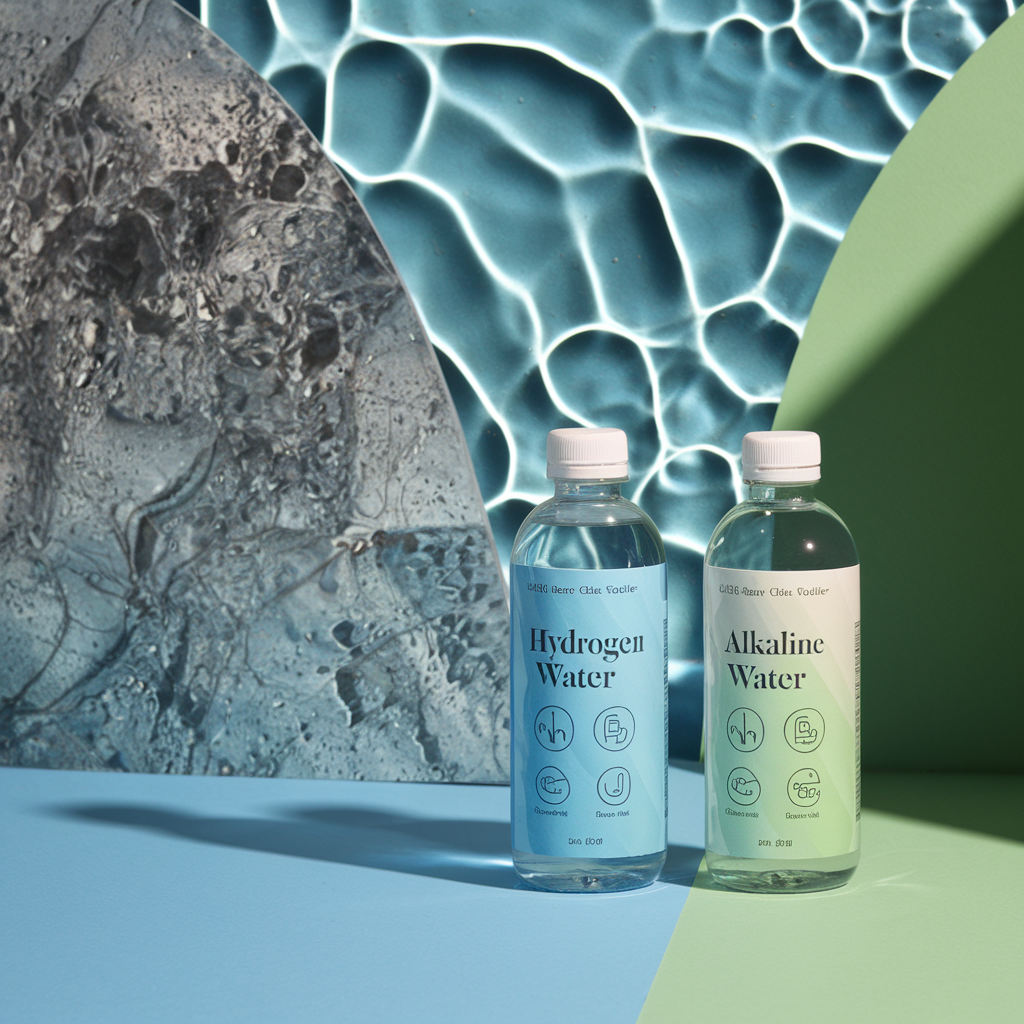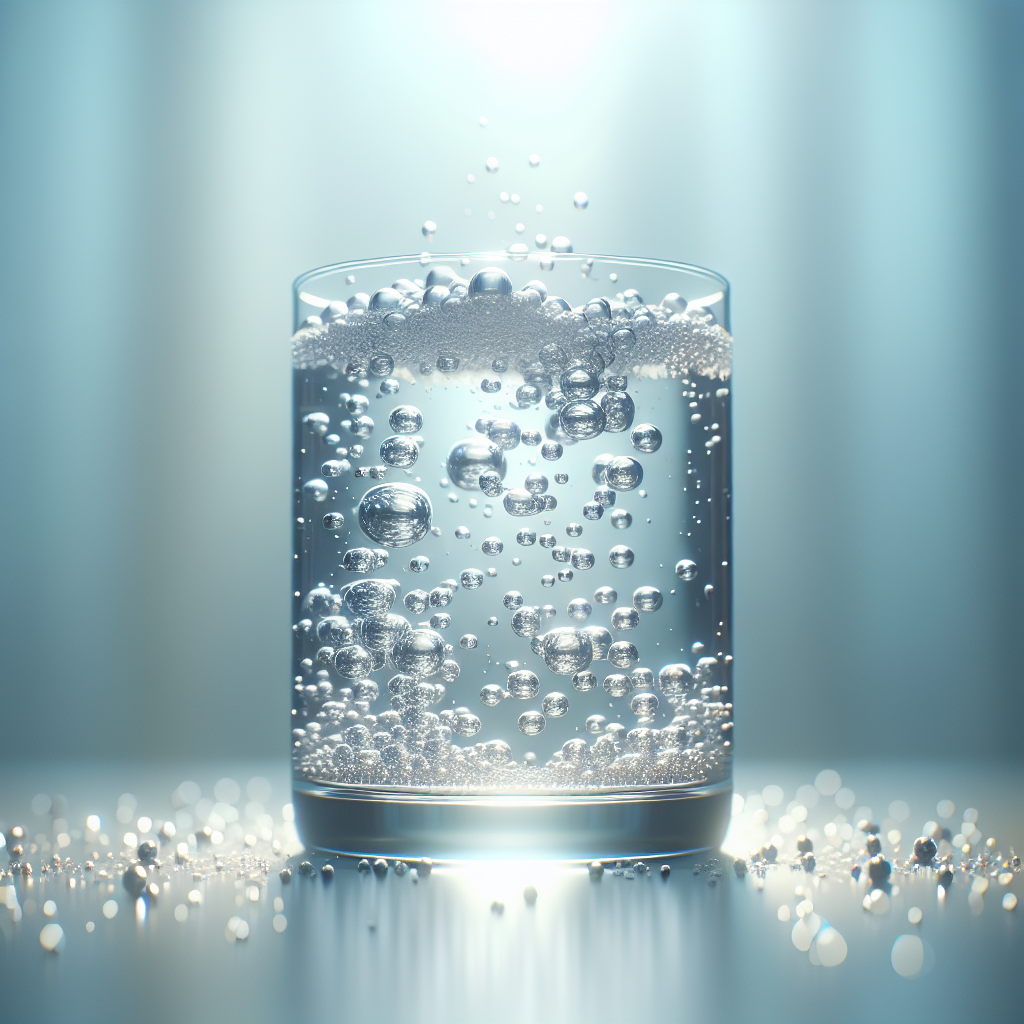
You might be wondering about the growing buzz surrounding hydrogen-rich water vs alkaline water in the health and wellness community. While both options claim to offer health benefits, they work in fundamentally different ways. Your quest for optimal hydration has likely led you to explore these alternatives, but understanding their distinct properties is crucial for making an informed choice.
H2-infused water focuses on providing molecular hydrogen for antioxidant benefits, while alkaline-enhanced water primarily aims to adjust pH levels. Through this comprehensive comparison, you’ll discover how hydrogen water reduces oxidative stress and how alkaline water neutralizes body acidity, helping you determine which option better aligns with your health goals.
Decoding Hydrogen Water and Alkaline Water

The distinction between hydrogen water and alkaline water lies in their fundamental composition and therapeutic mechanisms. While hydrogen-rich water contains dissolved H2 gas that actively combats oxidative stress, alkaline water primarily focuses on pH levels. You’ll find that hydrogen water’s molecular structure allows for superior cellular penetration and antioxidant benefits, whereas alkaline water mainly affects the water’s basic properties. Understanding these differences is important for making informed decisions about your hydration choices.
Understanding the Basics
Alkaline water differs from H2-infused water in both composition and benefits. When you choose hydrogen-enriched water, you’re getting powerful antioxidant properties that can reduce oxidative stress at the cellular level. Your body can readily absorb the molecular hydrogen, unlike the temporary pH changes from alkaline water. While alkaline water may help neutralize acidity, hydrogen water offers more comprehensive health benefits, including improved athletic performance and enhanced cellular function.
Health Benefits and Scientific Evidence

Assuming you’re considering alkaline water for its health benefits, it’s vital to understand that while alkaline water shows promise in certain areas, scientific evidence remains mixed. Research suggests that alkaline water may help neutralize excess stomach acid and could potentially improve hydration during intense exercise. However, your body naturally maintains its pH balance, and the long-term benefits of consuming alkaline water are still under investigation.
Comparative Analysis
| H2-infused water | Alkaline Water |
| Reduces oxidative stress | Neutralizes acidity |
| Provides molecular hydrogen | Higher pH levels |
Clearly, when you compare hydrogen-enriched water versus alkaline ionized water, each offers distinct benefits. While hydrogen water focuses on providing antioxidant properties through molecular hydrogen, alkaline water primarily works by altering pH levels.
Mechanisms at Work
Evidence suggests that your body processes these waters differently. Hydrogen water contains dissolved hydrogen gas that acts as a selective antioxidant, targeting harmful free radicals while leaving beneficial ones intact. Meanwhile, alkaline water primarily works by temporarily affecting your body’s pH levels.
Mechanisms of hydrogen-rich water involve direct cellular penetration, allowing for improved cellular health and enhanced antioxidant activity. Your body can readily absorb the molecular hydrogen, which may help reduce oxidative stress at the cellular level. This process differs significantly from alkaline water’s surface-level pH modification.
Practical Considerations
Even when choosing between hydrogen-rich water vs alkaline water, you need to consider several practical factors. Storage requirements, shelf life, and cost implications vary significantly between these options. While H2-infused water requires special containers to maintain its hydrogen content, alkaline water is generally more stable but may need specific storage conditions to preserve its pH levels.
Absorption and Bioavailability
Some studies comparing hydrogen-enriched water versus alkaline ionized water show that hydrogen water provides superior cellular absorption. Your body can utilize molecular hydrogen more efficiently than the minerals in alkaline water. When you consume hydrogenated water vs alkalized water, the molecular hydrogen rapidly diffuses across cell membranes, potentially offering more immediate benefits.
Safety and Daily Use
Absorption patterns indicate that you should space out your consumption throughout the day for optimal benefits. While hydrogen water reduces oxidative stress more effectively than alkaline water neutralizes body acidity, you should maintain consistent hydration habits with either choice. When comparing hydrogen therapy water vs alkaline hydration, monitoring your body’s response is important.
Considerations for your daily intake should include timing and quantity. You might find that consuming hydrogen-infused water versus alkaline-enhanced water before and after exercise yields better results. For general hydration, experts suggest starting with smaller amounts and gradually increasing your intake while observing how your body responds to either option.
Final Thoughts
Ultimately, your choice between H2-infused water and alkaline pH water should be based on your specific health goals. While alkaline water can help balance body acidity and improve hydration, hydrogen-rich water has shown greater potential in combating oxidative stress and providing targeted antioxidant benefits. Research comparing the health benefits of hydrogen water to alkaline water reveals that hydrogen-enriched water has more scientifically-supported advantages, especially in enhancing cellular health and athletic performance. If you are looking for evidence-based health benefits, consider starting with hydrogen water as it has shown more promising results in therapeutic use and reducing oxidative stress.
FAQ
Q: What are the key differences between hydrogen-rich water and alkaline water?
A: Hydrogen-enriched water contains dissolved molecular hydrogen gas (H2) that acts as a selective antioxidant, while alkaline water primarily features a higher pH level above 7. H2-infused water focuses on providing antioxidant benefits and reducing oxidative stress, whereas alkaline-enhanced water aims to neutralize body acidity. The production methods also differ – hydrogen water is created through electrolysis or H2-generating materials, while alkaline water is produced through ionization or mineral addition.
Q: How does each type of water affect athletic performance and recovery?
A: Hydrogen therapy water has shown promising results for athletes, with studies indicating improved recovery times and reduced muscle fatigue due to its ability to combat oxidative stress. The molecular hydrogen in hydrogenated water can quickly penetrate cells, potentially enhancing performance and reducing inflammation. Alkaline water’s benefits for athletes are less documented, though some report improved hydration. The primary difference lies in hydrogen water’s direct cellular impact versus alkaline water’s pH-balancing properties.
Q: What scientific evidence supports the health benefits of each water type?
A: Therapeutic hydrogen water has substantial research backing its effectiveness in reducing oxidative stress and providing antioxidant benefits. Multiple studies demonstrate its positive effects on cellular health and various medical conditions. Conversely, alkaline-enhanced water has limited scientific evidence supporting its claimed benefits. While some studies suggest it may help with acid reflux, comprehensive research on its other proposed health advantages remains sparse.
Q: Are there any safety concerns or side effects associated with either water type?
A: Hydrogen-infused water is generally considered safe with no reported adverse effects when consumed appropriately. Its antioxidant properties work selectively without disrupting normal body functions. Alkalized water is also generally safe in moderation, but excessive consumption might lead to metabolic alkalosis, potentially affecting digestion and nutrient absorption. The body naturally maintains its pH balance, making extreme alterations through alkaline water unnecessary and potentially problematic.
Q: How accessible and practical are these waters for daily consumption?
A: Free radical scavenging hydrogen water is available in various forms, including bottles, tablets, and home generators, making it relatively accessible for daily use. The cost varies depending on the chosen method. pH-balanced alkaline water typically requires specialized ionizers or regular purchases of bottled products, which can be more expensive and less convenient. Both options require some investment, but hydrogen water generally offers more flexibility in terms of preparation and consumption methods.



